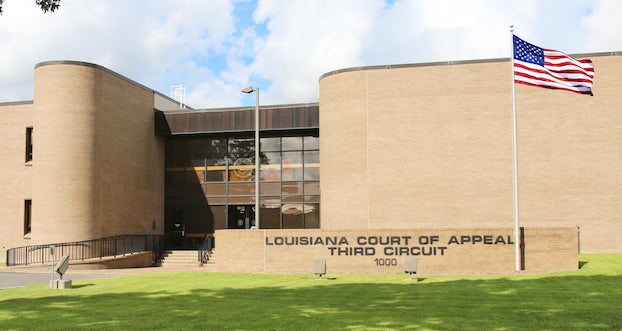Judge rules clock running on prosecution in cases
Published 4:56 am Thursday, March 21, 2013
Judge Wilford Carter ruled in three criminal cases Wednesday that the prosecution’s clock continues to run even while funds are sought for the defendants’ counsel.
Carter also ordered a stay of prosecution in the three indigent defense motions heard Wednesday — in the cases of Debbie Rome, Cynthia Guillory and Faith Ryan.
A lack of funds in the Public Defender’s Office has caused indigent defense cases to be farmed out to private attorneys to be worked pro bono.
Some of the attorneys have requested funds for overhead costs and have filed Citizen motions to have their cases stayed until such money is found.
Such motions stem from a Calcasieu case in 2002 in which the state Supreme Court upheld a stay of proceeding in Adrian Citizen’s murder prosecution until funds for his defense could be found.
As to whether the clock keeps running, the high court said only that “of course, we do not intend to interfere with the defendant’s right to a speedy trial.”
Depending on the severity of the charge, the state has one to three years to prosecute criminal cases.
Jay Dixon, head of the Public Defender’s Office, testified Tuesday that though his office found out it will receive an additional $116,000 from the Louisiana Public Defender Board, it is only enough to get his office through the year. He said there aren’t funds to pay for the private attorneys’ overhead costs or investigative costs.
The $116,000 is the “exact amount they believe it will take for us to make it through the fiscal year,” he said.
Carter also ruled that the prosecution’s clock — known legally as prescription — will continue in the case of Andrew Kyle, whose case he had previously ordered stayed.
“What else would encourage the state to do something than to say, ‘Time is running’?” Carter said.
The 3rd Circuit Court of Appeal has already upheld the stay of proceedings in Kyle’s case. Prosecutor Carla Sigler said she plans to file a writ of appeal in the Kyle case with the state Supreme Court this week.
She plans to file appeals on the prescription rulings with the 3rd Circuit, she said.
“These cases and this issue have far-reaching complications and I’m not sure what the result would be if we get an adverse ruling at the Supreme Court,” Sigler said.
Sigler argued, as the District Attorney’s Office has done in the past, that the problem lies with the state Public Defender Board, which got $33 million from the Legislature this year.
Sigler said the board “systemically” underfunds the local office, while spending a large portion of its money on “the less than 100 capital cases.”
“They’re the ones that are creating this situation, artificially,” she said.
Carter said he would not interfere with a defendant’s right to a speedy trial.
“The right to a speedy trial overrides the right to prosecute,” the judge said. “The right to a speedy trial is a basic right.”
“We think it will take the prescription issue to force the state to add more money to the budget,” said defense attorney Shane Hinch, who represents Faith Ryan.
Although Sigler said she disagreed with the ruling, she hoped that it would bring about results.
“I do think that this ruling, along with Kyle, will get something done,” she said. “I’m hopeful that we will get some sort of resolution, although I think it should be a resolution that states the state board needs to fund the local office to a sufficient degree.”
Dixon said his office gets 40 percent of its funding from the state and 60 percent from local sources. Most of the local funds are from traffic ticket court fees.
He said that in 2010 the PDO received an “infusion of funds” from the state so that it could move from part-time attorneys to full-time. He said that attorneys closed their private practices and were given pay raises.
But he also said he “hung on to that money,” which gave him a $300,000 surplus at the end of last year that he used to help him continue to fund the office.
(mgnonline.com)




